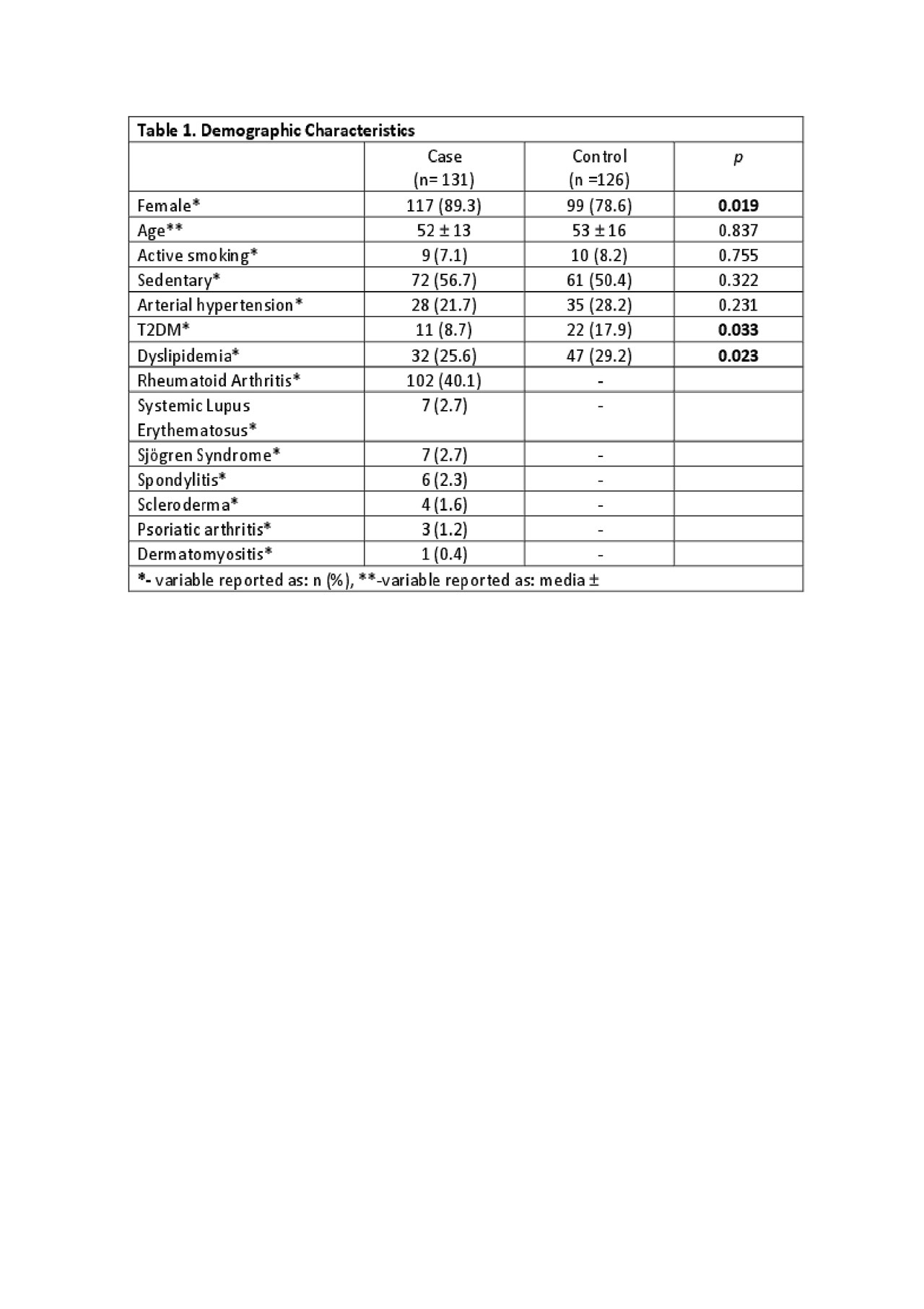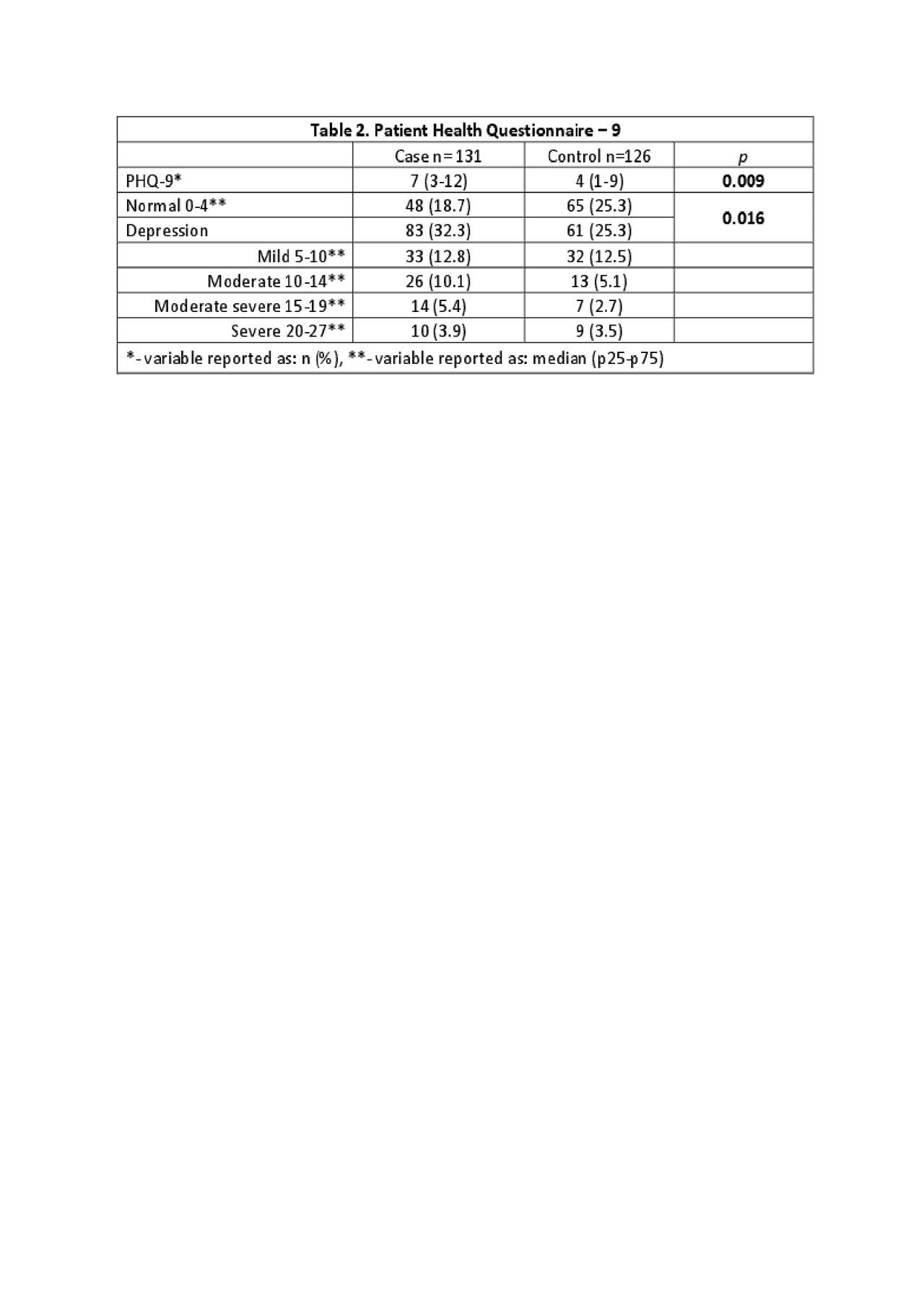Session Information
Session Type: Poster Session (Sunday)
Session Time: 9:00AM-11:00AM
Background/Purpose: Depression is a frequent comorbidity in rheumatic diseases (RD) and it is associated with chronic pain and long-term medical treatment in these patients. Furthermore, studies have reported the impact of depression in these population and it is consistently associated with the severity and sensitivity to pain, poor treatment outcomes, disease activity and potentially with early mortality. The Patient Health Questionnaire 9 (PHQ-9) is an extensively validated screening tool. It has several advantages: it is more accurate than other screening tools with 88% of sensitivity and 88% specificity, it is self-applied and able to be used by any clinician. Thus, the aim of this study was to determine the prevalence of depression in a group of RD patients and compare it to non-rheumatic controls.
Methods: An observational, cross-sectional study was designed. Patients were recruited at a community educational healthcare conference. Population was divided into two groups: patients with and without RD. A complete history with information about exercise and the PHQ-9 screening tool were performed to every subject. Subjects without RD were recruited as controls. Descriptive analysis was done using frequencies (%) and median (q25-q75). Comparisons were done using Chi-square and Mann Whitney-U test, considering p < 0.05 as significant.
Results: A total of 257 subjects were included. Demographic characteristics are shown in Table 1. Patients with RD have greater scores of PHQ-9 with a median of 7 points (p25-p75, 3-12) than controls with a median of 4 (q25-q75, 1-9) (p= 0.009). In the case group, 83 patients (32.8%) have diagnosis of depression and 61 (25.3%) of the controls (p= 0.016).
Subjects with an inactive lifestyle have a higher prevalence of depression, being sedentary in both groups has an OR 3.246 (IC 1.92 to 5.47), p< 0.001. Sedentarism is highly significant in controls (p < 0.001), but not in RD (p=0.085).
Conclusion: Patients with RD have a higher prevalence of depression than non-rheumatic subjects. An inactive lifestyle was associated with a higher prevalence of depression in both, those with and without RD. The physicians should be aware of it and use screening tools for early detection and provide a multimodal management.
To cite this abstract in AMA style:
Galarza-Delgado D, Azpiri-Lopez J, Colunga-Pedraza I, Cuellar-Calderon K, Reynosa-Silva I, Castro-Gonzalez M, Martinez-Flores C. Depression: A Common Comorbidity in Rheumatic Diseases. a Case-Control Study [abstract]. Arthritis Rheumatol. 2019; 71 (suppl 10). https://acrabstracts.org/abstract/depression-a-common-comorbidity-in-rheumatic-diseases-a-case-control-study/. Accessed .« Back to 2019 ACR/ARP Annual Meeting
ACR Meeting Abstracts - https://acrabstracts.org/abstract/depression-a-common-comorbidity-in-rheumatic-diseases-a-case-control-study/


